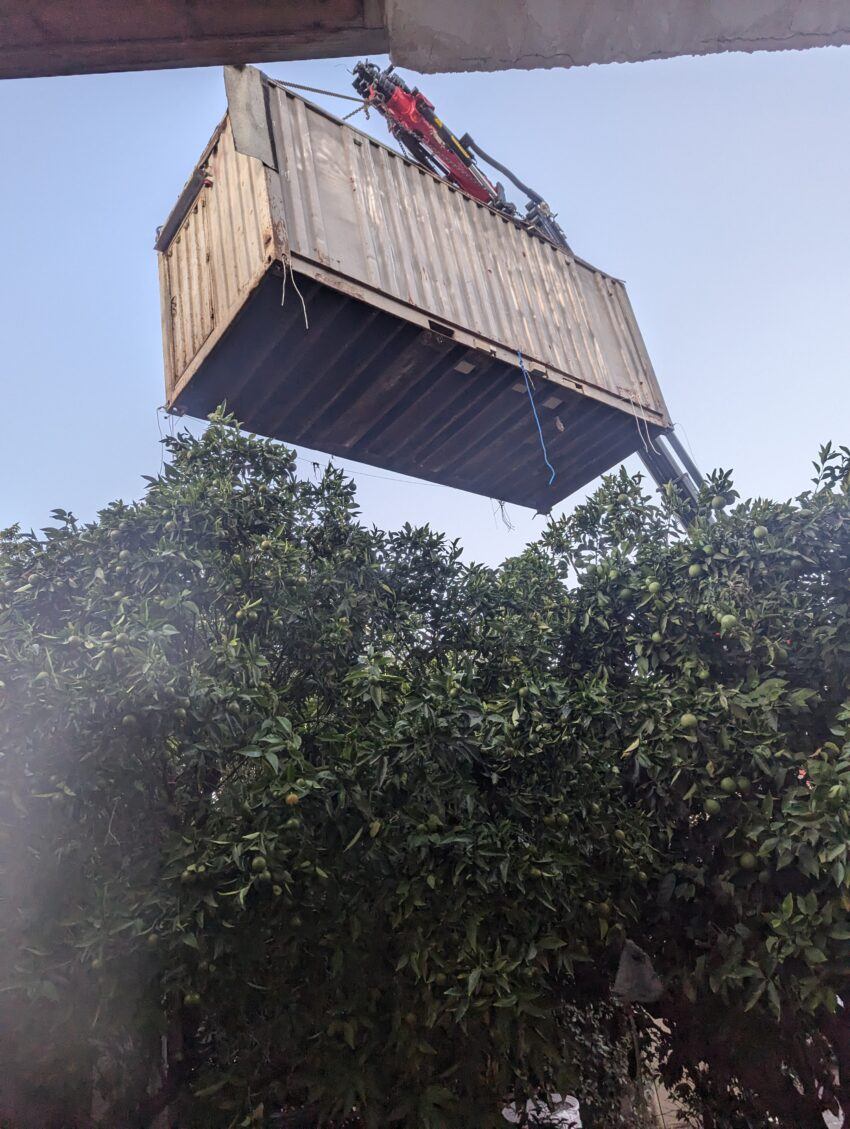Feeling Overwhelmed: What Does It Mean to Me?
Right now, as I sit and write these words, I feel my heart racing. It’s as if I want to shut everything out and just have some peace and quiet. For the past month, I’ve had so much to write, but I kept pushing it off for later. The last time I had an amazing idea, it slipped away because I had to move on to the next thing. But I promised myself that whenever I felt like I needed to scream, I’d write instead. And that time has come—that’s why I’m here, writing these words.
So where should I start? Are you really interested?
Well, here’s my reality. My dad passed away two months ago and I still can’t believe it.
I stayed in Israel for two months to support my mum emotionally and also to help her to organise what my dad left behind. Due to the war, my daughter and I came back with what I suspect is PTSD. The trauma lingers, and we live with it every day, even though we’ve returned to Australia.
What else? I’m not satisfied with how I spend my time, work, and career development, but I know that will change soon. I’m a single mum with no family here in Australia, and at times, I struggle financially. My partner and I, after six years together, are no longer a couple. I still have to finish my two units plus a placement for my master’s degree. So yeah, being overwhelmed is an understatement.
What Does Being Overwhelmed Mean for Others?
Feeling overwhelmed is something so many people experience, and it can take many forms. It’s that crushing sense of having too many responsibilities or emotional overloads like grief, trauma, and anxiety. Whether it’s work piling up, personal loss, or everyday stressors, overwhelm can make us feel like we’re drowning.
Feeling overwhelmed often happens because our brain’s response to stress goes into overdrive. When our brain’s emotional center, the amygdala, is overstimulated, it can lead to feelings of anxiety, panic, and a sense of helplessness. Our ability to make decisions, manage time, and prioritize becomes compromised, and that’s when burnout happens.
So how do I still smile?
The truth is, I don’t always. Sometimes, like now, I feel like I’m breaking into pieces. But writing these words is helping me get myself together and giving me hope. Thinking about the chaotic reality in Israel, the struggle to survive, and the fact that I have incredible family and friends—both there and a few here in Australia—reminds me that it’s all okay. There are people I can trust, people I feel safe with.
There are different strategies to deal with feeling overwhelmed. One of the biggest tools is time management, which is something I also work on with young adults in counseling. Many people come to realize that managing their time more effectively can alleviate that constant pressure. For me, I’ve realized that setting boundaries is equally important—knowing when to say no, and protecting my own energy so I can focus on what matters.
In moments like this, I remember that self-care isn’t just a luxury; it’s necessary. Taking time to go to the beach, have a walk, or listen to meditation grounds me. Studies show that practicing mindfulness, disconnecting, and prioritizing relaxation are key to managing overwhelm. Writing this post is part of my self-care—it’s giving me space to breathe and reflect.
Social support also plays a crucial role. Studies highlight that having a support network helps reduce feelings of stress. I’m grateful for my family and friends who remind me that I’m not alone in this journey. I can still make big plans to help others like me find tools for coping and self-regulation.
Boundaries, and Being a Mum
I also think boundaries are key. I’m learning to set boundaries to protect my energy, so I can focus on being present for my girls. I may not always get it right, but I’m doing my best—and sometimes, that has to be enough.
I’m a good enough mum with the time that I do spend with my girls. I’m there for them, and I let them decide when they want to spend time together. I know it might never feel like enough for them, but I’m giving them what I can, and I know that’s what matters.
Cry it out
And guess what? Sometimes, you just need to cry it out. Crying isn’t a sign of weakness; it’s a release. Crying can activate the parasympathetic nervous system, which helps the body rest and digest after stress. When you’re feeling overwhelmed, sometimes your body just needs to let it out. So go ahead—cry if you need to. It’s a way of resetting, and sometimes, it’s exactly what you need.
What’s Next?
Here are a few more strategies that can support reducing overwhelm:
- Deep Breathing and Mindfulness: When we feel overwhelmed, our breathing often becomes shallow, which only makes things worse. Practicing deep breathing exercises, such as diaphragmatic breathing, helps calm the nervous system. Mindfulness and meditation are also powerful tools. By focusing on the present moment, we can reduce feelings of stress and bring ourselves back to a state of calm.
- Movement and Exercise: Physical activity releases endorphins, which are natural mood lifters. Whether it’s taking a walk, stretching, or doing yoga, movement helps shake off the tension that builds up when you’re overwhelmed. I personally find walking on the beach a great way to clear my mind.
- Talk It Out: Sharing your feelings with someone you trust can lighten the emotional load. Whether it’s a friend, family member, or therapist, talking about what’s overwhelming you helps you process and gain perspective. Research shows that social support is one of the most effective buffers against stress.
- Sleep: Lack of sleep makes everything feel worse. When we’re tired, it’s harder to cope with challenges. Prioritizing sleep—even just getting a 10-minute power nap—can help reset your brain and give you the energy to face whatever’s next.
- Self-Compassion: One of the most important things to remember when feeling overwhelmed is to be kind to yourself. Overwhelm often comes from feeling like we’re not doing enough, or that we’re failing. But in reality, we’re human, and it’s okay to not have everything under control. Self-compassion means acknowledging that you’re doing your best, and that’s enough.
So how do I cope?
Some days I cry it out, some days I write, and other days I just sit with the overwhelmed. What helps me may not be the answer for everyone, but knowing that you’re not alone in feeling this way can be a comfort.
Being overwhelmed is tough. But recognizing it, writing it down, and finding ways to cope can make it feel less isolating. I still have so many plans ahead—big plans to help others who feel like me, those who need tools to manage and self-regulate through the chaos of life.
If you’re feeling overwhelmed, know that you’re not alone. We can all find ways to navigate this. And perhaps, in the process, we’ll realize just how resilient we are.



H Vered
I’m so sorry for your loss – so many losses . Your father, your relationship and – as for all of us – beautiful Israel as it was and now forever changed. And here in Australia so far from family and changes here too that are frightening. You are strong and resilient and your wise words are brave and inspiring. I know you will prevail. I hope you find support and love all around you.
With love and hopes for a better year ahead